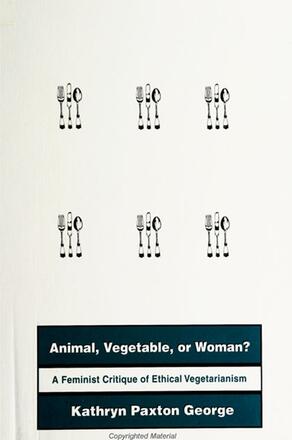
Animal, Vegetable, or Woman?
A Feminist Critique of Ethical Vegetarianism
Alternative formats available from:
Challenges current claims that humans ought to be vegetarians because animals have moral standing.
Description
Kathryn Paxton George challenges the view held by noted philosophers Tom Regan and Peter Singer and ecofeminists Carol Adams and Deane Curtin who assume the Principle of Equality to argue that no one should eat meat or animal products. She shows how these renowned individuals also violate the Principle of Equality, because they place women, children, adolescents, the elderly, and many others in a subordinate position. She reviews the principal arguments of these major ethical thinkers, offers a detailed examination of the nutritional literature on vegetarianism, and shows how this inconsistency arises and why it recurs in every major argument for ethical vegetarianism. Included is her own view about what we should eat, which she calls "feminist aesthetic semi-vegetarianism."
Kathryn Paxton George is Professor of Philosophy at the University of Idaho. She is the coeditor of two volumes: Agricultural Ethics: Issues for the Twenty-first Century (with Peter G. Hartel and James Vorst) and Readings in the Development of Moral Thought, Second Edition (with Marvin Henberg).
Reviews
"George has presented original, often compelling, arguments against ethical vegetarianism. Relying on well-researched evidence of nutritional and material differences among humans based on age, gender, race, class, and cultural location, George shows respects in which current arguments for vegetarianism falsely presuppose a male physiological norm and ideal. This book is necessary reading for animal rights advocates, feminists, ethicists, or anyone else interested in interconnected health and ethical issues concerning vegetarianism." — Karen J. Warren, author of Ecofeminist Philosophy: A Western Perspective on What It Is and Why It Matters
"This broadly provocative book should be controversial, worthy of being attacked on several fronts. It is central to two large topics: feminist philosophy and the moral status of animals. It will not be the last word on any of the controversial issues that it touches upon, but it is unequivocally the next word." — Paul B. Thompson, author of Food Biotechnology in Ethical Perspective